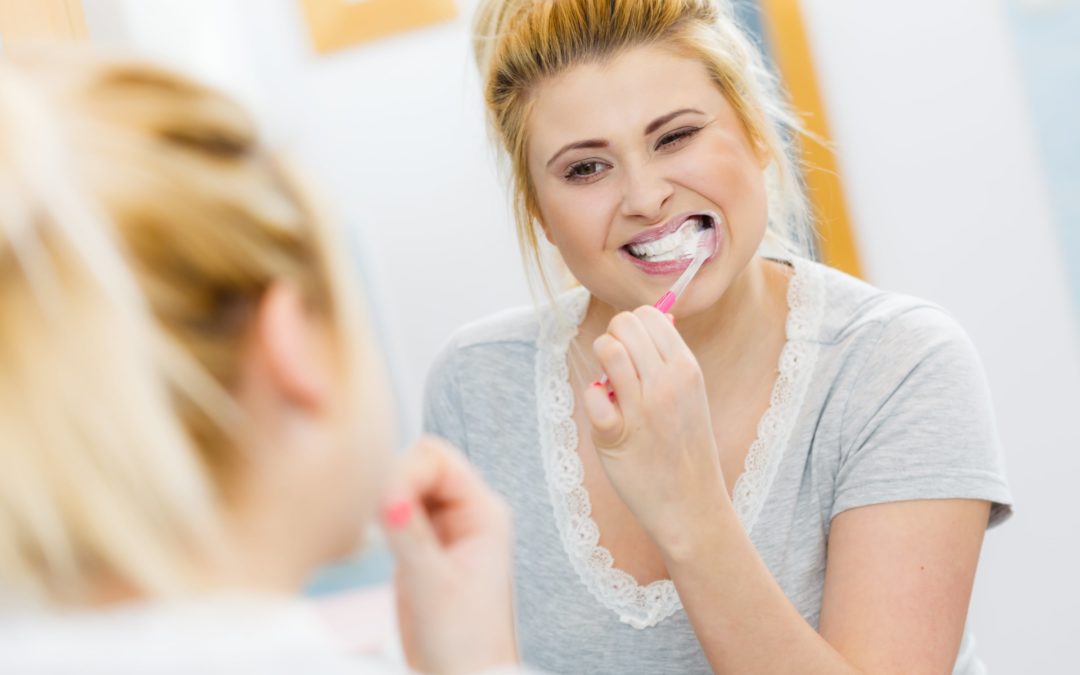Scientists are continually looking for new ways to improve oral care products, and using microbeads in toothpaste used to be a popular method of adding abrasive qualities to the product. Now that microbeads are going to be banned, you can rest assured that you can find a toothpaste that works effectively for you and doesn’t harm the planet. Learn why the eradication of microbeads spells good news for your health and the environment’s health, too.
What Are Microbeads?
According to a research report on the American Chemical Society microbeads are plastic fragments or beads ranging in size from roughly 5 μm to 1 mm. They are made from synthetic polymers including polyethylene, polylactic acid (PLA), polypropylene, polystyrene, or polyethylene terephthalate. Microbeads are used in hundreds of products, often as abrasive scrubbers. Microplastic has been reported in every major open ocean and many freshwater lakes and rivers. They are an ingredient in a variety of personal care products and have a few different purposes. Microbeads are used as an exfoliant or abrasive agent, they allow for a timed release of active ingredients, they add bulk to personal care product formulas and they may prolong a product’s shelf life. These capabilities, plus the inexpensive manufacturing costs, may account for this ingredient’s popularity.
The Environmental Issue
Because microbeads aren’t biodegradable, they pose a significant environmental concern. Toxic Link notes that no legal framework is in place for restrictive use of microplastics or microbeads in India. A tap water survey analysis conducted in India found that 82.4% sample was contaminated with microplastics. Studies have found microplastics in Gujarat and Chennai coast, Mumbai beaches and Kerala lake. International studies have also found microplastics in drinking water (tap) samples from Delhi and bottled water from Mumbai, Delhi and Chennai. A National Institute of Oceanography study (running) has found microplastics absorbed in fish tissues.
Alternatives
Beginning in January, 2020, micobeads in cosmetic products has been banned. Manufacturers have begun replacing microbeads with sustainable, biodegradable options. For example, the Centre on Environment Literacy – Eco-labelling and Eco-friendly Products notes that a team of four Purdue students has developed SoyFoliate, a soy-based soap that does away with the existing plastic microbeads in most exfoliating soaps. The soap uses soy-based components that are environmentally friendly, unlike the plastic microbeads. The soy beadsprovide a naturally degradable substitute for the plastic microbeads.
The plastic beads do not absorb water, but soy can over time. So they mixed beads with small amounts of oil to prevent water from saturating the beads and decreasing their rigid properties. Students are still doing research on increasing shelf-stability and ensuring the product is safe for the environment.
Toothpaste Abrasivity
If you previously turned to a toothpaste with microbeads because of their potential abrasive properties, there are plenty of other toothpastes available. Abrasive toothpastes are often used for their ability to scrub surface stains from teeth. But choosing a toothpaste that’s too abrasive, or using a hard-bristled toothbrush, can wear down the outermost layer of your teeth called the enamel.
That’s why it’s important to search for an American Dental Association Seal of Approval when shopping for toothpastes. The ADA Seal of Approval is only awarded to toothpastes with a relative dentine abrasivity (RDA) score of 250 or less, ensuring that the toothpaste won’t harm your enamel.
Armed with knowledge about the negative impact of microbeads on the environment, you can now make more informed decisions when selecting a toothpaste from the personal care aisle that cleans your teeth effectively.
If you would like more information on how to best clean and protect your teeth, Johnson Family Dental in Paducah can help. The most important factor in protecting your teeth is regular dental cleanings. Give Dr. Ben Johnson a call to schedule your next appointment at (270) 554-2432, stop by our office located at 2913 Lone Oak Rd, Paducah, KY or CLICK HERE to contact us!

